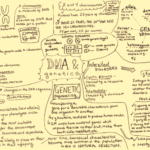Many students find their MFL GCSE to be one of the most challenging to master, but with careful preparation you can ace those exams, and finish your GCSE with a great grasp of your chosen language. The following tips will help you secure success with your GCSE course.
Get to grips with the grammar
Mastering the grammar is a MUST for attaining the highest grades.
Knowing the different verb conjugations and different endings relating to different pronouns and tenses opens up a whole new perspective for dealing with French.
Start off with present, move onto perfect, then onto future, imperfect and if you’re feeling really in the mood, try and learn the pluperfect and subjunctive.
Websites such as https://www.laits.utexas.edu/tex/ provide great self marking exercises to support your practise
Value your vocabulary
Knowledge of vocabulary is absolutely key, especially for the reading and listening papers. Not knowing vocab shuts off the potential you have to achieve highly.
Knowing vocabulary is a memory game.
Make mind maps of key vocabulary for each topic. Break each one down into verbs, key vocabulary, opinion phrases + adjectives and problems + solutions.
Use a bit of colour to help chunk the information up and organise your thinking.
Using ‘look, cover, say, spell, check’ to test yourself on the key words and use Quizlet or Memrise to make sure you’re going over all the key words, and if you are competent with grammar and tenses, then French will soon become the subject for you.
Speak up
Many students can feel intimidated by the prospect of their speaking exam, but actually, it can be one of the most controllable elements of the GCSE.
Depending on your school, you should be provided with Speaking Booklets which give you GCSE practice questions. Many students write down answers and attempt to learn these answers by heart, hoping the questions come up in the exam. This is just impractical. Factoring in how many topic questions there could be, you will have to remember hundreds of sentences if you use that method.
My advice, is to learn key phrases and vocab, and have in mind a few ideas you want to talk about if that topic comes up. For example, if in the exam the topic of leisure activities comes up, you could be ready mention something along the lines of playing football or going out with friends.
Having a rough idea for every topic area will only boost your confidence and fluency going into the exam. It is really important to practise these questions – either with a parent or carer at home, or with one of your friends.
Other helpful strategies to prepare for the speaking exam are;
- Practice forming and understanding a range of questions.
- Practice and learn key verb formations in a range of tenses.
- Practice explaining opinions in detail.
- Practice narration (telling a story).
- Practice describing a photo.
Practice Past Papers
Past papers are your best friends! Aim at doing at least two each month, from different exam boards. You can find them online or you ask your teacher or tutor for some more. Here are the main GCSE French exam boards. You should be able to find past papers for each:
Use authentic resources
Listening to a Spanish, German or French podcast on YouTube (intermediate level) that you can relatively understand is a great way to broaden your vocabulary and become accustomed to common phrases and pick up on words that you have never heard before.
There are also lots of great series and films on Netflix and Prime which you could watch with subtitles to help to broaden your vocabulary and practise listening. Equally, for the reading exam, you could practise with, some articles on a Spanish, German or French news website.
You could also change the settings on your phone or other devices to the language you are studying to support with your acquisition of vocabulary.








 See More Genuine Reviews
See More Genuine Reviews